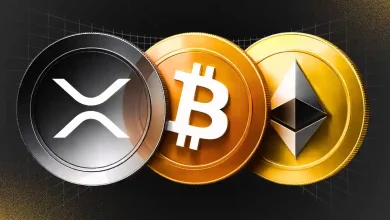
A coalition of fintech, crypto, and banking trade groups, including the Blockchain Association, Crypto Council for Innovation, and Financial Technology Association have urged the CFPB to finalize an open banking rule.
They warn that big banks are trying to weaken data-sharing rights and stifle competition.
Crypto and fintech groups are pushing regulators to protect consumers’ rights over their financial data.
A coalition of fintech, crypto, and banking groups, including the Blockchain Association, Crypto Council for Innovation, and Financial Technology Association submitted comments to the Consumer Financial Protection Bureau (CFPB) regarding the reconsideration of the Personal Financial Data Rights (PFDR) Rule under Section 1033 of the Dodd-Frank Act.
They expressed strong support for robust consumer financial data rights and urged the CFPB to finalize an open banking rule.
The rule would let consumers safely share their financial information with third-party services, enabling them to link bank accounts to crypto exchanges, stablecoin wallets, and other fintech apps.
Rights “Under Attack”
The groups highlighted that over over 100 million Americans use Open Banking to access tools that help manage their money and businesses, from digital payments and investment apps to crypto wallets and AI financial assistants. However, they warned that these rights are currently “under attack.”
“The nation’s largest banks want to roll back open banking, weaken consumer financial data sharing, and crush competition to protect their position in the marketplace,” they wrote. They argue that financial data fundamentally belongs to consumers, not the nation’s largest banks.
Key Actions Urged
The groups have specifically called for two key actions:
- Confirm that Americans can securely control and share their financial data with authorized third parties by maintaining a clear definition of a “representative.”
- Keep the ban on consumer data access fees to ensure a free and competitive market.
The groups also urged the CFPB to keep compliance timelines predictable and based on company size that prevents unnecessary delays.
Last year, the CFPB finalized a rule requiring banks and credit unions to share consumers’ data with them or authorized third parties. However, the Bank Policy Institute sued, arguing that the rule overreaches, risks privacy, and banks must protect customer data. The CFPB announced that it would reopen the rule.
Tyler Winklevoss Reacts
This sparked a reaction from Tyler Winklevoss, co-founder of Gemini. “Banks want to gut the Open Banking Rule (1033) so they can tax and control your financial data and remove your freedom to choose the services you want. This is bad for crypto and financial innovation in America,” he said.
The groups emphasized that a strong open banking rule is essential for a competitive and innovative financial ecosystem.
They noted that robust policies put the U.S. on par with leading economies like the U.K., Singapore, Brazil, India, Japan, Canada, and the EU, all of which protect consumers’ data rights. They also warned that limiting these rights could threaten not only current financial progress but also American competitiveness and future innovation, especially in fast-moving areas like AI.
Never Miss a Beat in the Crypto World!
Stay ahead with breaking news, expert analysis, and real-time updates on the latest trends in Bitcoin, altcoins, DeFi, NFTs, and more.
FAQs
Open banking lets you securely share your financial data with third-party apps, helping you manage money, use crypto exchanges, and access innovative financial tools safely.
Large banks argue they must protect data, but critics say they want to crush competition and maintain control over your financial information and choices.
Yes, a strong open banking rule enables you to safely link your bank account to crypto exchanges and wallets, giving you more freedom and choice.
Trust with CoinPedia:
CoinPedia has been delivering accurate and timely cryptocurrency and blockchain updates since 2017. All content is created by our expert panel of analysts and journalists, following strict Editorial Guidelines based on E-E-A-T (Experience, Expertise, Authoritativeness, Trustworthiness). Every article is fact-checked against reputable sources to ensure accuracy, transparency, and reliability. Our review policy guarantees unbiased evaluations when recommending exchanges, platforms, or tools. We strive to provide timely updates about everything crypto & blockchain, right from startups to industry majors.
Investment Disclaimer:
All opinions and insights shared represent the author's own views on current market conditions. Please do your own research before making investment decisions. Neither the writer nor the publication assumes responsibility for your financial choices.
Sponsored and Advertisements:
Sponsored content and affiliate links may appear on our site. Advertisements are marked clearly, and our editorial content remains entirely independent from our ad partners.








